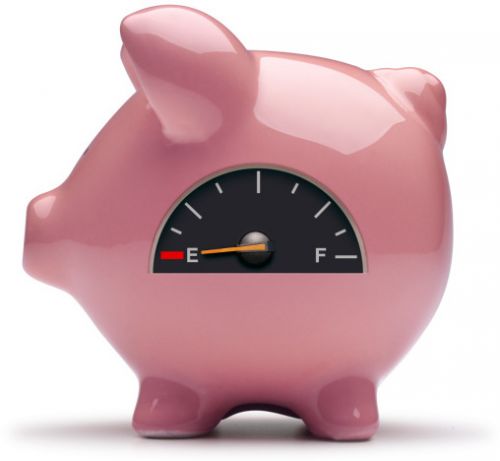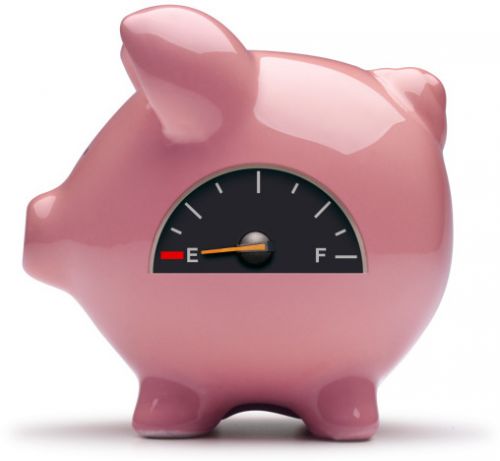
Many decades ago, I discovered the reality of Jesus’ teaching that it’s more blessed to give than to receive (Acts 20:35). So I became a giver, and I’ve received many blessings as a result.
But, as with most truths, there’s another side to this principle: Healthy relationships are reciprocal. When one person in the relationship does all the giving and the other does all the taking, the bond inevitably becomes twisted and toxic.
Sadly, I’ve been rather slow in learning this. Giving has always been a natural part of who I am, but receiving is much more difficult for me. I don’t like asking people for their help, even when I need it. And the thought of being a burden to someone else is horrifying.
So, when I give, I seldom expect anything in return. Based on Jesus’ words in Luke 6:34-35, I’ve always thought this was the godly way to relate to people. But once again, I’ve often missed another important component of the relationship equation. Too often, I’ve been willing to continually give and give, while the other person received and received. Although this made me feel good at first, it was a prescription for codependency, certainly not a healthy relationship.
The apostle Paul seemed to face this kind of situation with the Corinthian church. He had poured his life into them and opened his heart wide. While this kind of imbalance was fine in their infancy, he said it was now time for them to grow up and open their hearts to him as well (2 Corinthians 6:11-13).
Monitoring Your Account
If we don’t ever monitor our checking account, we run the risk of overdrawing it from time to time. Our relationships need to be monitored and assessed in much the same way.
I’ve found that when our emotional bank account is full and overflowing, it’s very easy to be a giver. But if the other person never puts anything back into the relational bank account, we eventually discover that the account is empty or even overdrawn.
Have you ever experienced this? If you’re a chronic giver like me, I’m sure you have. And then you find yourself resenting the very people you joyfully gave your life to for so long.
If you are willing to do all the giving, you’ll have no trouble finding people willing to do all the taking. Even with that imbalance, everything is likely to seem fine until the relational bank account finally runs dry.
This is a hard lesson, but you’re not doing people any favor if you allow them to become a leech instead of a healthy contributor to the relationship. They may not be able to contribute as much as you do, and that’s okay. But they need to contribute something.
Making Changes
Recently I’ve had to say “NO” to several people who wanted to make a withdrawal from my emotional bank account. Why? Because, over the course of time, they had never put anything into the account.
When people face times of crisis, it’s natural to want to help them. But what about a situation where someone always seems to be in crisis mode? And how should you respond those who never make any deposit into your account even when times are good for them? It may seem harsh, but sometimes the imbalance is so great that the wisest thing to do is to shut the door on the relationship altogether.
In contrast, I’ve found that it’s always a great joy to give to those who’ve taken time to make a deposit of some kind into my life. Whatever they need, I’m happy to give it if I can.
So I hope you’ve discovered the joy in being a giver. But I also hope you’ve learned to develop healthy, reciprocal relationships, where both of you are putting something into the account.
If, like me, your relationships have often been off-balanced, perhaps it’s time for some frank discussions with your friends and family members. Don’t wait until the account is totally overdrawn to request some changes.
One More Thing…
Even as we learn the importance of cultivating reciprocal relationships, where both parties make contributions into the account, there’s another vital principle we must never forget: The ultimate source of love is God Himself, not any human relationship.
“Let us love one another,” we’re told in 1 John 4:7, “for love comes from God.” If we look to any other source, we’re certain to face disappointment.
You see, we’re much more likely to be hurt by our human relationships when we allow our love relationship with the Lord to run dry. When His love is overflowing in our lives (Psalm 23:5), we’re far less likely to be offended by the failure of people to make deposits into our emotional account. That doesn’t let them off the hook, but it means we can abide in God’s peace and joy even when people let us down.



Great teaching on the balance in healthy relationships. As Jesus said, It is more blessed to give than to receive, but there is still a blessing to be had in receiving. I study the way Jesus related to people in the Gospels and invariably find Him in the giving mode most of the time. Like you said Jim, His need to be validated, loved and accepted came from His relationship with His Father.
Your words are so encouraging. The first step is realizing who is constantly withdrawing without making any deposits and learning how to say no. Thank you for sharing.